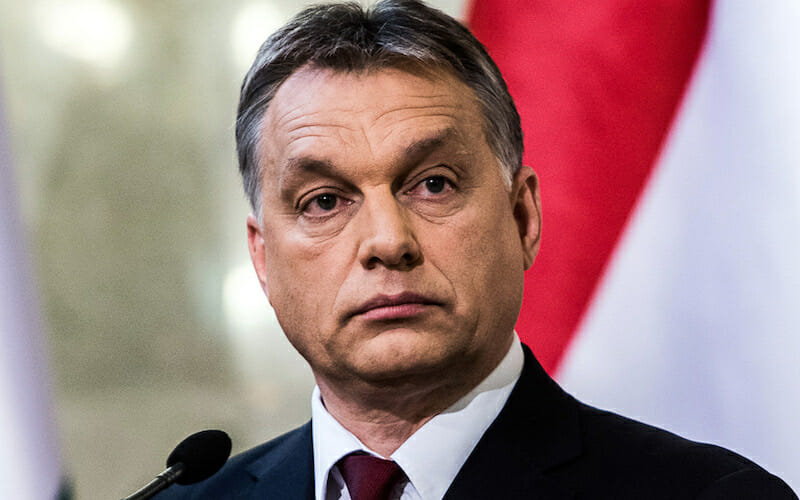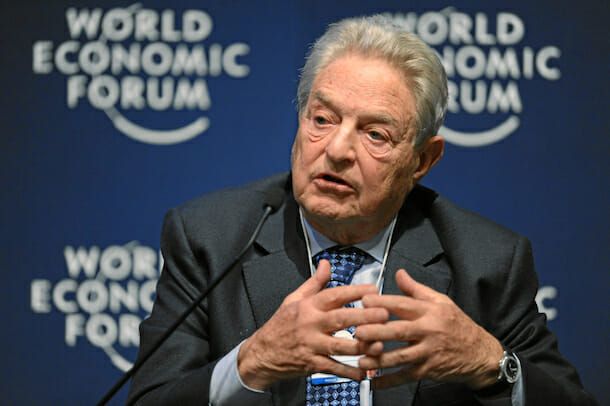
Viktor Orbán’s Soros Problem
Where there are refugees and asylum seekers, there will be the assistants, the exploiters and the opportunists. The global anti-refugee sentiment has become an industrial complex, well-funded, sharpened and vicious. The richer the state, it follows, the more developed that complex.
In that regard, the Hungarian case has a distinct, rancid flavour to it. For some years, the billionaire financier and philanthropist George Soros has loomed as a target for the politics of the Orbán administration. Since 2015, the Fidesz party has been mining that particular quarry for rhetorical gain, depicting Soros at stages in company with opposition leaders armed with wire cutters at the border fence.
In a speech in March this year, Orbán was in blisteringly populist form, one assured by a sketchy historical account. “We sent home the [Ottoman] sultan with his army, the Habsburg Kaiser with his raiders and the Soviets with their comrades. Now we will send home Uncle George.”
The lead-up to April’s parliamentary elections saw the Soros bogeyman make another stellar appearance, a figure portrayed as distinctly against Hungarian interests, but more importantly against the Hungarian political system. Being a Hungarian Jew, and child survivor of the Holocaust, was not earning the philanthropist much sympathy. Nor was the niggling fact that Orbán had been a very direct beneficiary of Soros’ largesse, going to Pembroke College Oxford in 1989 on a scholarship after his benefactor’s name. In politics, patricide is a given.
Never keen on keeping matters purely rhetorical, Orbán has also adopted a legislative dimension. “Stop Soros” laws have been passed by Hungary’s parliament criminalising individuals or groups who assist illegal immigrants claim asylum. In the justification appended to the draft legislation, Interior Minister Sándor Pintér explained that, “The Hungarian people rightfully expects the government to use all means necessary to combat illegal immigration and the activities that aid it.”
Not content with targeting Soros on the refugee front, Orbán has also added another poisoned tip to his arsenal: education. The Soros-funded Central European University has featured as part of a broader strategy to tighten regulations pertaining to foreign universities. While the CEU’s Board of Trustees has insisted it will not close its Budapest operations, preparations are being made to open a campus in Vienna.
CEU’s board chairman Leon Botstein was hoping that that the university had seen off the challenge in making appropriate legal adjustments. “The Hungarian government has repeatedly said that once we fulfil the conditions of the new law, we will be fairly treated and that CEU will be able to operate in Hungary.” Such pluckiness against the Hungarian government raises the question as to whether the school’s operating license will be renewed by year’s end.

As with all exercises in venomous propaganda, a sliver of truth might be gleaned from the otherwise intemperate subject matter. Orbán is not tilling virgin soil. For years Soros has been an irresistible hate figure for demagogues. He famously reaped $1 billion in a single day in 1992 by moving against the British pound and breaking the Bank of England. Some years later, in the course of the 1997 Asian crisis, Malaysia’s prime minister Mahathir Mohamad shook a furious finger at the man for doing what was claimed to be the same against the ringgit. The criticism also came with its distinct anti-Semitic additive.
By 2006, Mahathir had changed his tune, burying the hatchet with Soros in accepting the explanation that “he was not involved in the devaluation of the Malaysian currency and that other people were involved.”
Soros has also had his own change of heart about the ravages of a financial system that is fundamentally anti-democratic, taking a dimmer view about globalisation and its discontents. “It is a sort of disease when you consider yourself some kind of god, the creator of everything.”
Such gains in wisdom have not prevented Soros from playing god in some instances, having weighty financial stabs to change peoples’ minds, though many are laced with trimmings of conspiracy. He has been accused of throwing money at causes like a drunk lord in search of trends, all ostensibly to “bring down” some corrupt order. In the United States, the Black Lives Matter and Antifa movements have featured in the rollcall.
US Presidencies have also been a subject of interest to his pocket, with Soros once stating he would trade in all his wealth to prevent the re-election of President George W. Bush. In a country where billionaire donor meets bought politician in so overt a way, this could hardly shock, though it did make the financier an open target for conservatives and reactionaries. He has since been accused by various outfits of influencing the likes of former CIA director David Petraeus and former Trump National Security advisor H.R. McMaster.
Nor has the donation streak been philosophically consistent. While Soros proudly markets himself as a pro-democracy figure, he has riled the British (again) with efforts to seek a second referendum on the issue of Brexit, which might be said to fly in the pockmarked face of democratic sentiment.
For Orbán, Soros has been worth his weight in gold. He has been packed together in the same show as the EU, twin demon motifs appropriated for political gain by various European countries who have fallen out of love with the European project, or at the very least the idea of a central European project dictated by the western portion of states. Hungarian politicians have rediscovered their self-proclaimed historical importance, becoming the knights in rusty armour holding forts before the barbarians of Africa, the Middle East and Brussels. Not one for the human rights books, but certainly something for the dog-eared nationalist tales for the future.

